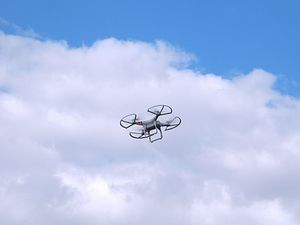January 9 marked the end of a government-imposed deadline for users to register their drones in Thailand. The deadline, which was instituted late last year, is part of a broader trend where governments in the region and the world are mulling tougher regulations in response to the growing use of drones and the challenges they present.
As the use of drones or unmanned aerial vehicles (UAVs) has been proliferating across the world and in the Asia-Pacific, governments in general have begun thinking about and acting on ways to regulate their use. Media headlines tend to focus mostly on non-democratic regimes because of additional concerns regarding rights.
Within Southeast Asia, of late the most scrutiny has been on Myanmar, where in November journalists were sentence to two months in prison for operating a drone near parliament. Most other governments in the region – from Cambodia to Singapore – have in fact instituted some regulation on drone use as they try to find the right way to manage the opportunities and challenges of UAVs.
Thailand, which has been under a military-led government since a coup back in May 2014, has been a case in point in this respect. Last October, the government introduced new regulations for drone use. Those regulations, which covered drones used for various purposes ranging from purely recreational to scientific and commercial – all except UAVs under 250g – where quite broad and largely similar to ones we have seen in other cases, including the need to have proper insurance and some restrictions on height and distance to select buildings and areas, including state facilities specified by the Civil Aviation Authority of Thailand (CAAT).
Registration was also part of the new regulations that were adopted last year, with the National Broadcasting and Telecommunications Commission (NBTC) claiming at the time that only around 350 of an estimated 50,000 drones had up to that point been registered in the country. Under those regulations, anyone failing to register drones would be subject to a 100,000 baht ($3,100) fine or up to five years in prison.
The deadline for registering was January 9, 2018, which passed this week with some final reminders issued by the Thai government. On Tuesday, Thai media outlets reported that NBTC secretary Thakorn Tanthasit as saying that 8,391 people had been recorded so far as registering their drones since the regulations went into effect last October, with just under half of these at the central office and the remaining at provincial offices, with a few hundred drones also registered with CAAT.
That number is expected to go up since authorities have not included recent registrations as well. And as the government continues to enforce existing regulations amid lingering concerns among drone users and other opponents, Thailand will continue to be a case to watch as part of the broader conversation on UAV/drone regulation.

































